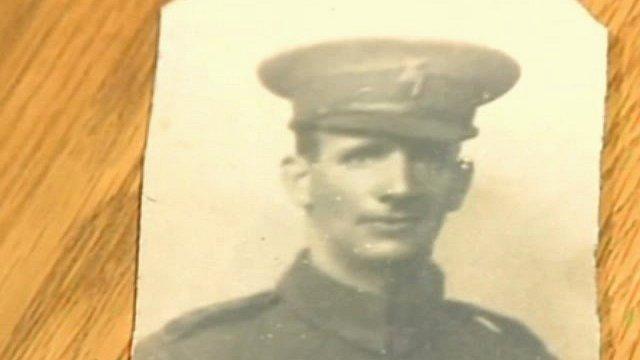Battle of the Somme: The mother who lost three sons in WW1
- Published
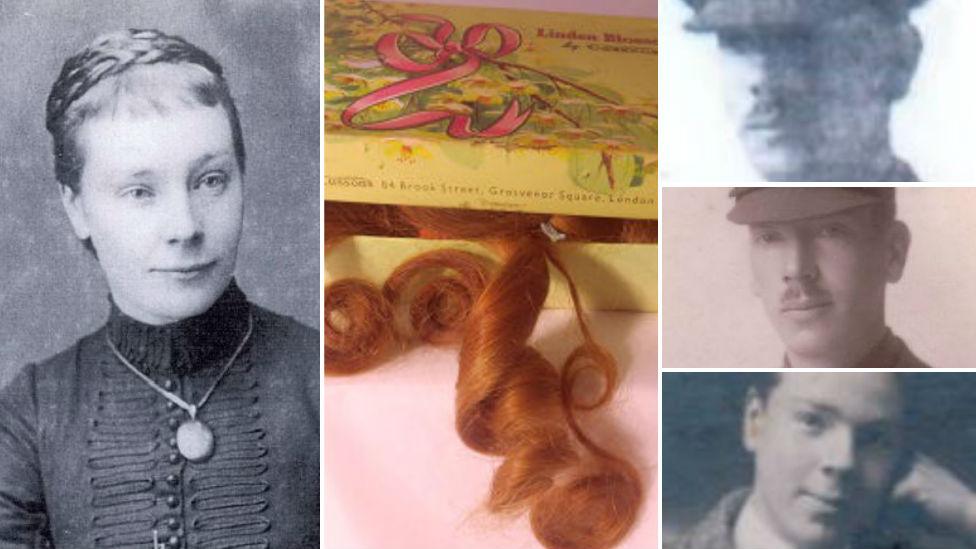
Three of Kitty Wilmot's sons died during World War One. She treasured the locks of their hair until her death
Thousands of soldiers fought and died alongside their own fathers, brothers and cousins on the bloody battlefield of the Somme. Decades later, the discovery of locks of hair in a drawer led one woman to discover the tragic story of her family's past.
Miranda Michels always wondered about the soft and glossy golden ringlets she found as a girl in a trinket box hidden in the dark recesses of her grandmother's desk.
The precious keepsakes were the key to unlocking the story of the Wilmot brothers, Robert, Cecil and Tom - who were all killed in World War One - and Larry and Ned, who survived.
"It was something that was never talked about, there was little to go on, and it was not until I inherited diaries and letters that I began to look into it," she said.
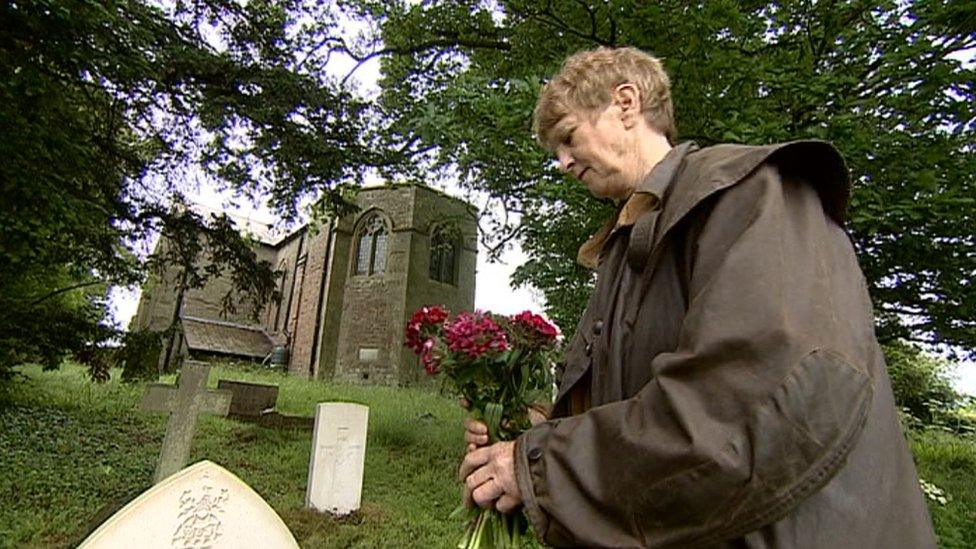
Miranda Michels lays flowers at a family gravestone at All saints Church in Yatton, Herefordshire

The Wilmot brothers:
- Robert: Born 1886. Captain in the 10th Battalion, Sherwood Foresters. Killed 29 October 1917, aged 31, at Poelcappelle, in Belgium. Buried in the Ruisseau Farm cemetery, Belgium
- Cecil: Born 1891. Private in The Worcestershire Regiment. Died 23 July 1917, aged 26, at Lewisham Hospital and is buried in Yatton churchyard
- Edward (Ned): Born 1893. Lieutenant in the Herefordshire Territorial 1st Brigade. Served at Gallipoli. Was wounded and gassed but survived the war
- Tom: Born 1896. 2nd Lieutenant in the 2nd Battalion, Worcestershire Regiment. Awarded the Military Cross for his actions on the first day of the Somme. Killed 25 August 1916, at Delville Wood. Buried in Heilly Station cemetery, Mericourt-L'Abbe, France
- Laurence (Larry): Born 1898. Joined the 21st Royal Fusiliers (Public Schools Battalion) and then the Herefordshire Regiment. Wounded but survived the war
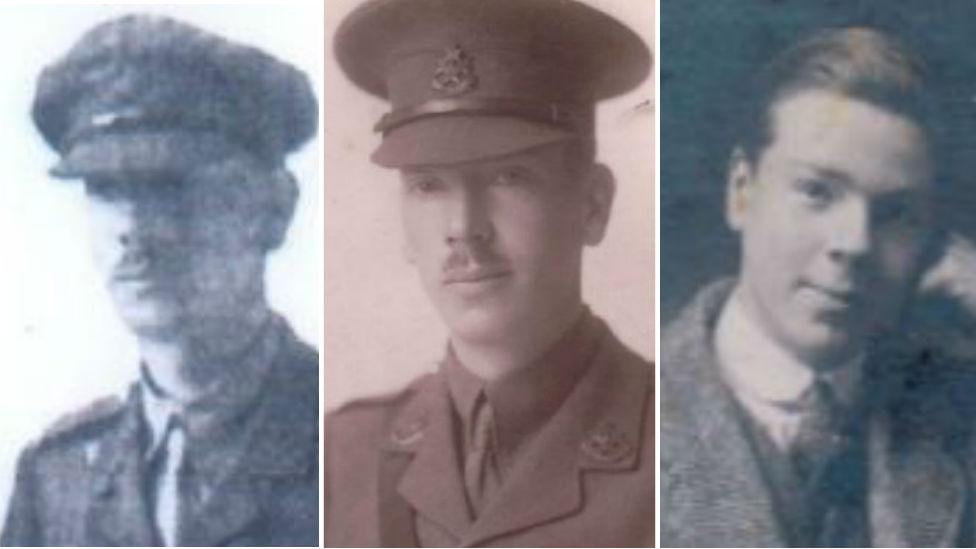
Tragic brothers, from left: Robert, Cecil and Tom Wilmot were all killed in World War One

She learned her grandparents, the Reverend Frances and Kitty Wilmot, had had 11 children - five boys and six girls.
The brothers were born in Buxton, Derbyshire and grew up in Herefordshire, after their father moved to St Mary's Church in Monnington-on-Wye.
Poring over the yellowing pages filled with handwriting, Ms Michels learned of fun times spent boating, picnicking and milking cows.
"They had a glorious childhood which was brought to a close more quickly than it should have been," she said.
Miranda Michels is transcribing the diaries and letters
The boys' halcyon days were over abruptly when war broke out in 1914. Two were farming in Canada but their mother called them back to fight for their country.
All five joined up and served at Gallipoli and on the Western Front. Robert, Tom and Larry all fought in the Battle of the Somme in 1916.
Ms Michels says from reading the letters she developed a particular fondness for one great-uncle in particular - keen sportsman and adventurer Tom.
"He was such a livewire, so positive, fun and full of enthusiasm about everything," she said.
When his brother Larry was shot through both kneecaps during the Battle of the Somme, he wrote to congratulate him, perhaps because the injury meant he was out of the fighting.
"How absolutely magnificent. It's hell while it's on but nice looking back on it once it's over," Tom wrote.
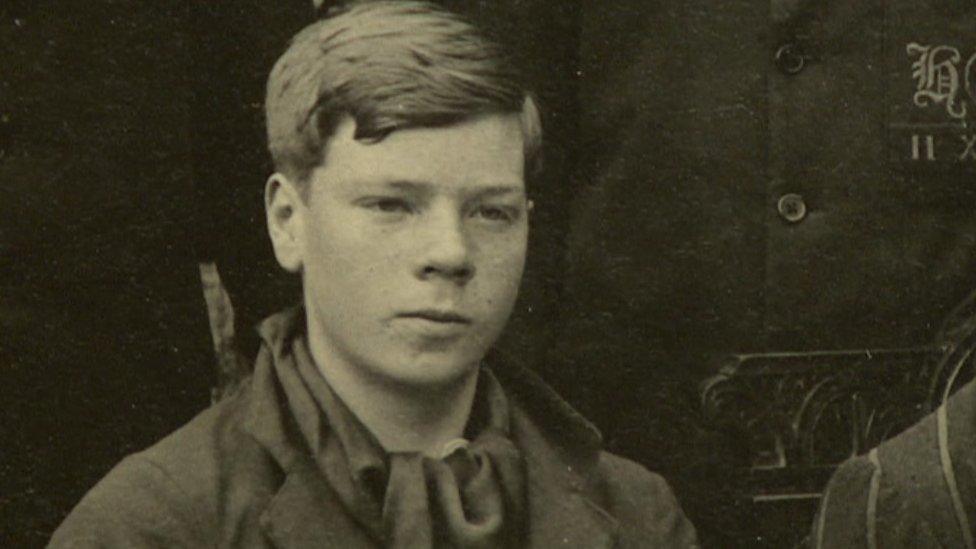
Tom Wilmot returned from farming in Canada desperate to sign up to fight for his country
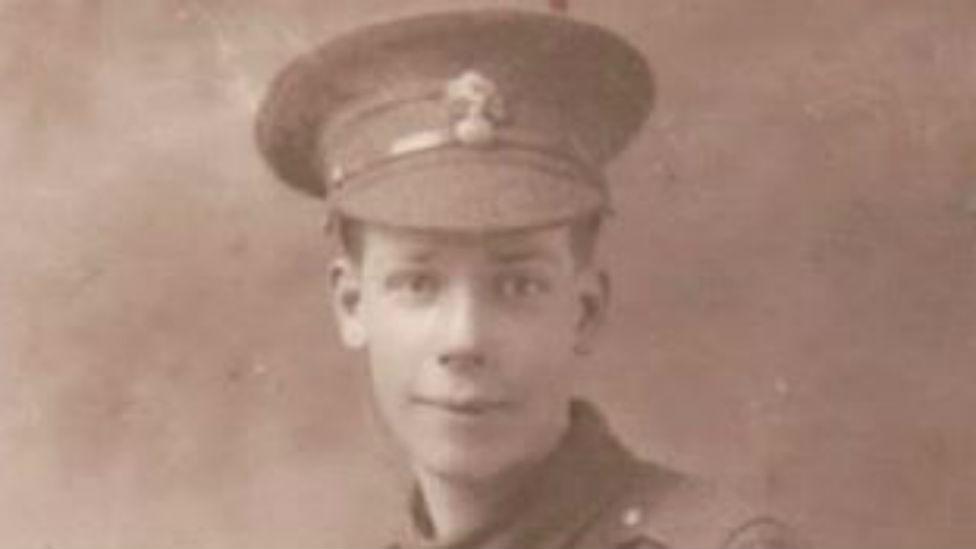
Larry Wilmot lied about his age to join the Army and was shot through both kneecaps during the Battle of the Somme
One hundred years ago this week, Tom went over the top at the Somme and was awarded the Military Cross for "conspicuous gallantry".
He wrote to his mother: "Just a short letter to say I'm alright. We're all very worn out and I shall be glad when I get a rest. No time to write. Your loving son, Tom."
The letter was to be his last. A month later a casualty sister wrote to Mrs Wilmot that her son had been "severely wounded in his abdomen".
"Lt Wilmot was very comfortable all day. He slept on and off and seemed to be in no pain, only very thirsty at times," she wrote.
"Towards the evening he grew weaker and asked me to write home and let you all know that he was here and sent his love to everyone.
"He almost immediately fell asleep for an hour and passed away at 8pm."
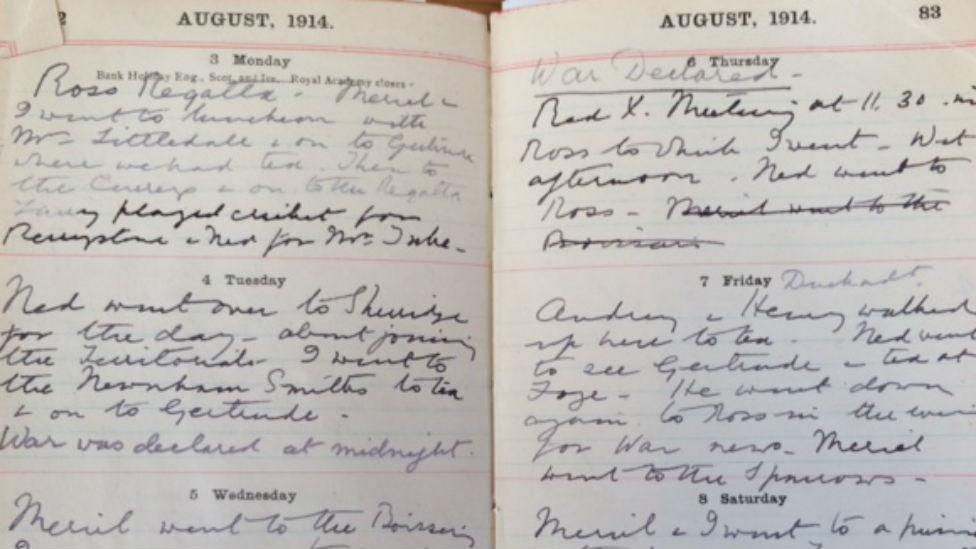
The page of Kitty Wilmot's diary recording the declaration of war in 1914
Tom's sister Audrey wrote to their mother "it is impossible to believe little Tom will not be coming home again".
Their brother Robert wrote home: "It is too difficult to realise... but he was a born soldier and would have done great things.
"I'm sure you will be as wonderful as always and not give way to depression for it is the finest end of all."
Mrs Wilmot dealt with each of her sons' deaths in a notably stoical fashion.
"She would report the deaths of her sons in her diaries saying 'Another darling son has been killed' and then the next entry might be something she is doing in the garden the next day," her granddaughter said.
"There is no sackcloth and ashes and wailing and gnashing of teeth. She just got on with her life."
Cecil died a year after Tom after contracting a lung disease in the trenches and three months later Robert was killed by a shell.
The youngest of the brothers, Larry, who had lied about his age to join up, recovered from his wounds and survived the war.
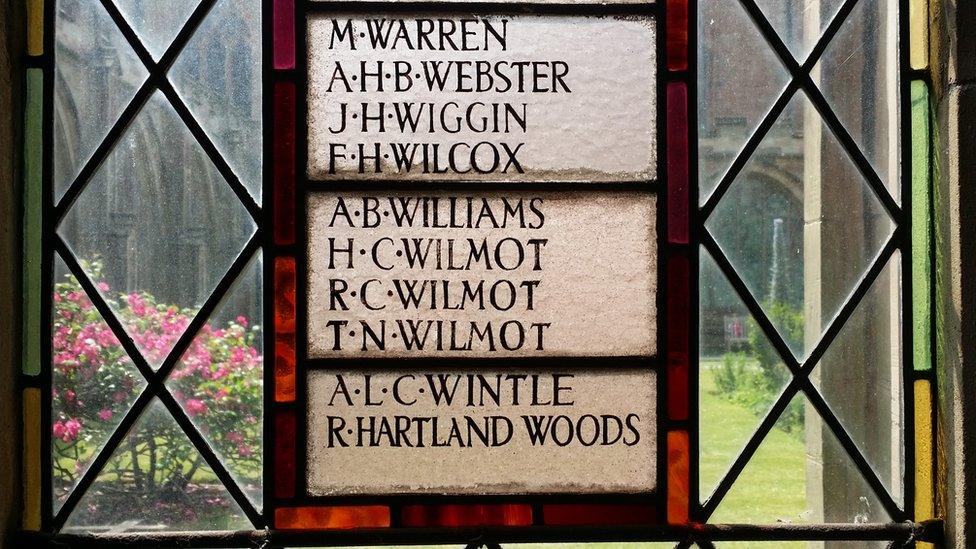
The three brothers who were killed had all attended the King's School in Worcester. Their names are included in a memorial window in the neighbouring Worcester Cathedral.
Ms Michels remembers him in his 60s as "the uncle who always gave her nice presents", but who still carried the mental scars of his experiences.
"He was just this shadow really," she remembers.
"He had been terribly in love with this girl called Tisty, who lived at The Fosse in Hereford.
"They'd been together since they were 14, but when he came back [the relationship] failed because neither of them were old enough to deal with his problems.
"She never married and he never married - it was all very sad."
Col Andy Taylor, curator at Herefordshire Light Infantry Museum, said the correspondence provided an unusually comprehensive account of the war.
"The tragedy of losing so many of the same family can hardly be imagined."
- Published1 June 2014
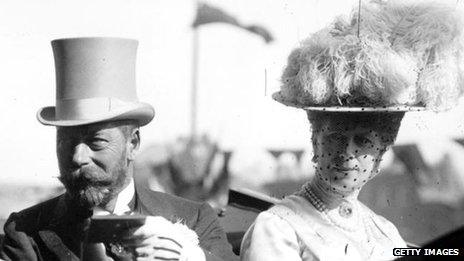
- Published30 July 2014
